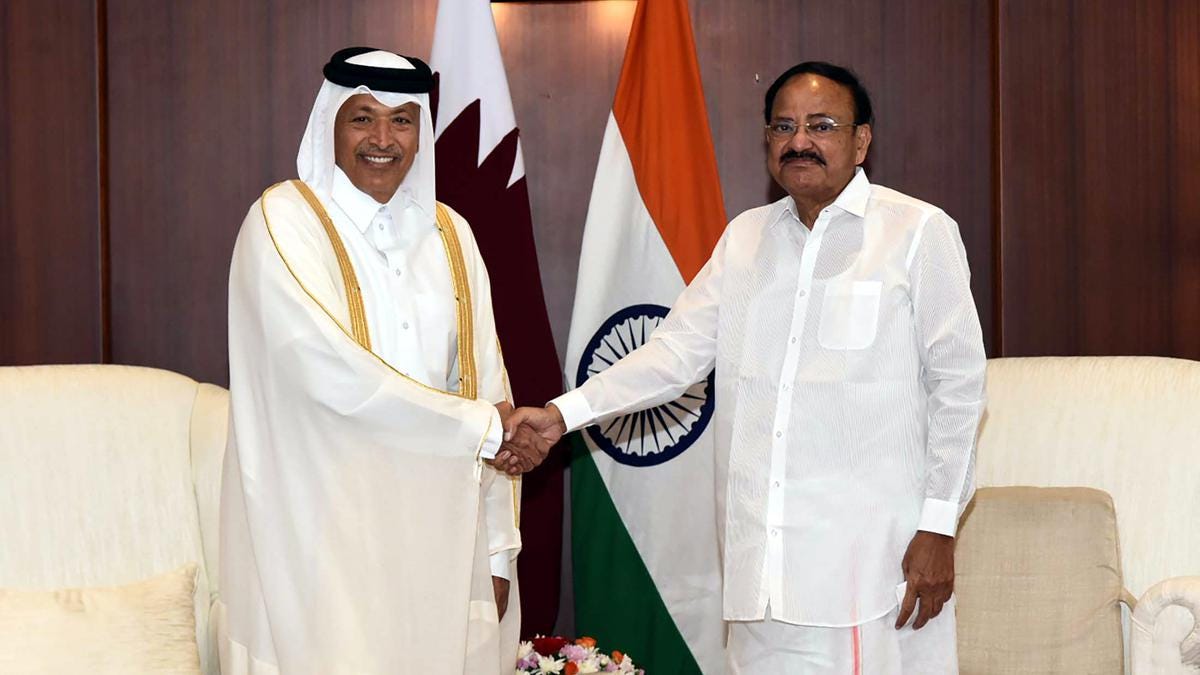A Closer Look at the "Strained" India-Qatar Diplomatic Relations (Exclusive Input)
India-Qatar Relations are not quite hunky-dory, since June 2022, when Doha embarrassed Vice President M. Venkaiah Naidu who was then visiting Qatar (Exclusive Input from an External Affairs Expert)

An Expert Weighs In
A well-informed expert in Foreign Affairs, who opted to remain anonymous, reached out, after perusing our article, to provide deep insights into the increasingly bristled diplomatic relationship between India and Qatar.
A Visit Pulled into Controversy
The relationship, he stated, took a downward turn coincidentally during Vice President Venkaiah Naidu's visit to Doha from 4 to 7 June 2022. At this time, Nupur Sharma, a spokesperson for India's ruling Bharatiya Janata Party (BJP), had made incendiary remarks about Prophet Muhammad (PBUH). This led to the abrupt cancellation of Mr Naidu's key pre-scheduled activities in Doha, including a dinner meeting with Qatar's Deputy Emir and a planned press conference, leaving a lasting shadow on bilateral relations for the past year.
Limits of Diplomacy
Furthermore, the source highlighted that Qatar often utilises media platforms like Al Jazeera Arabic to spotlight incidents of alleged anti-Muslim violence in India and to articulate a contentious position on the Kashmir issue. The prior Indian Ambassador to Qatar, who now serves as Joint Secretary in the Prime Minister's Office, made concerted efforts to stabilise these relations. However, our source cautions that the efficacy of the Foreign Ministry wanes significantly once intelligence agencies get involved, adding layers of complexity to an already intricate diplomatic milieu.
Geopolitical Complications
The situation, he went on to elucidate, is further complicated by Qatar's alignment with groups like Hamas and the ongoing conflict between Israel and Gaza. While the Court of Cassation in Qatar offers a venue for legal appeals, the source was sceptical about the likelihood of a favourable ruling.
Lessons from the UAE
Drawing upon the analogous experiences of a previous Indian ambassador to the UAE, the source emphasised that even strong diplomatic relationships are not a panacea for resolving complex geopolitical issues, where death penalty is involved.
The Emir's Pardon Power
In closing, the expert noted that despite Qatar's absence of democratic institutions and a transparent rule of law, the Emir retains the ultimate power to issue pardons. Exercising this authority would likely necessitate direct intervention from India's Prime Minister, or at the very least, the National Security Advisor.1
Qatar Sentences 8 Ex-Indian Navy Men to Death: The Full Story
Introduction In a startling development that has rattled India's diplomatic circles, eight former Indian Navy personnel have been sentenced to death by a judicial court in Qatar. The Ministry of External Affairs (MEA) has termed the verdict "deeply shocking" and is reportedly pursuing all possible avenues, both formal and informal,…





